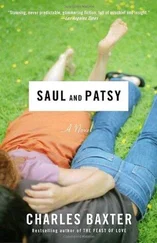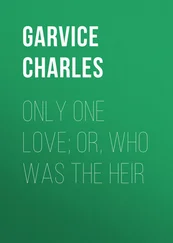So I ran over next door, where Harry and Esther Ginsberg were, and there was more snow in my shoes, and I thought I would faint, but I pounded on their door knocker, and I said, “Help! Please, help! Somebody, please!”
And I heard Harry coming toward the door, and as he opened it, he said, like he didn’t know it was me, like my voice wasn’t my own but a man’s voice, like he thought it was someone else, “Aaron? Is that you? Aaron?”
I KNOW ONE UNASSAILABLE TRUTH: Help your friends and those whom you love; hurt your enemies. The very banality of this formulation ensures that most academics — who enjoy hurting their friends — will ignore it.
For days, in any case, I lay awake, thinking of Aaron and of how I might have done him indeliberate harm. I awoke, nocturnally fevered, my forehead sweating, perspiration soaked into my pajamas, in my unforgiving mind’s eye the spectacle of Aaron being ill served by my negligence. On my son’s behalf, I had performed no heroic measures, the ones that, bright with prudence, you wisely do not perform in the daytime but whose nonperformance terrorizes your conscience following the arrival of dusk. Disquieted, assailed, I would rise out of bed and aimlessly walk down the hallway to the bathroom. I would switch on the light. All bathrooms, whatever their minute variations, are overilluminated at night, just as, at night, all telephones when they ring are too loud. The existential nocturnal glare of bathrooms has a certain ghastliness built into the shadowless illumination. Under such lights one discovers the first signs of cancer.
Moody and forlorn with middle age, baffled by the enigmatic Christian knight of faith, Kierkegaard, who nevertheless came to grips with spiritual psychologies as few thinkers ever have, battered with visual memories of Aaron, I would walk back to the bed, comically abandoned by sleep. It occurred to me that my lifelong tramps through the landscapes of philosophy had set Aaron off in the direction of counterphilosophy, of Scientology and Theosophy and Anthroposophy and the other occult sciences he favored. Who knows, who knew, what set him off? Perhaps he loved men and not women. But who would care one way or another about such a choice, in this era, except the unenlightened? We would have accepted him gladly, accepted his homosexuality, if that’s what it was. We would have welcomed him back to the house. He knew that. He could have come back, our own beloved prodigal, bedecked with strange clothes and jewels, dressed like a gypsy, and we would have swung wide the door and hugged him and kissed him. But no, he preferred to hate and to be hated.
This is the only cure for insomnia I know. Lying on my back, I would imagine myself in a cosmopolitan but still rather lethargic city, a city that had long ago given up worldly ambition, a city in genteel decline, Lisbon, for example (which I have never visited), where I am sitting at an outdoor café during a mild summer afternoon, drinking bitter coffee and reading the paper in Portuguese. Esther sits there with me, commenting on the architecture of the square — shabby Baroque — and on the passersby. Some are solitary. Others, the lovers, walk arm in arm. They all have an inaptitude for work. The women wear bright scarves tangled around their necks, the young men wear peacock-colored shirts. Occasionally we witness a group of three or four, laughing quietly as they pass in front of us. Then I revise the city so that the square faces the estuary. Boats sail in and out past the anchorage, near a breakwater at whose end is a harbor light. I am also on some of these boats (I am subdivided), and I wave to myself affably. No one has to go anywhere, no one has to accomplish anything. One has, it seems, an entire lifetime to sort through the major questions and to develop a coherent set of opinions and judgments on these matters. The meaning of everything will arrive in due course.
Gulls land and then take flight from the quay at Alcântara. The waiter brings another cup of coffee, a boat toots in the distance over the lapping waves, there is a hint of rain beyond the wharf, a bank of clouds developing over the horizon suggests but does not threaten the relief of a storm. At the next table over a man feeds olives to a gray pet parrot perched on his finger. Esther murmurs something to me, a consoling phrase, I don’t quite attend to it, though I may register the words later. I look around again at the harbor and now at the buildings behind me. Nearby, children are playing hopscotch. Two scholars of the Talmud stroll by, arguing in Portuguese flavored with Yiddish. A small band of musicians is tuning up, a trio of vagabond string players enjoying the outdoors, intending to perform Rossini. I am not particularly hungry, but when the solicitous waiter comes by I order a plate of the local delicacy, a rolled pastry with honey tucked inside.
I take another sip of coffee.
Usually this little nighttime fantasy is enough to send me off to sleep. But on certain nights, following fierce committee meetings at the Amalgamated Education Corporation, I must calm down by closing my eyes and reading the imaginary paper in imaginary Portuguese at length. I don’t read Portuguese, but in my insomnia cure I do. I scan the paper at my sidewalk café near the harbor. The paper I imagine has trivial matters reported in a lively and almost comically beautiful prose. This is paradise, to read a newspaper containing matters of no consequence written by vainglorious prose stylists. A woman has her purse stolen in a leather shop, all this reported in a fashion that would have done honor to Gibbon, if the great man had written in Portuguese. A man falls off a balcony, breaking a bone or two, and the account has the melancholy wit of Saint-Simon. In another section of the paper, a cat is reported missing, but the story has been written by G.W.F. Hegel, and one can barely discern the cat. Well, no one admires Hegel’s prose style, but it is pleasing and relaxing to imagine Hegel, humbled at last, having to write for a newspaper. Hegel also reports on the doings at the racetrack. Elsewhere, a soccer match is narrated by Proust, an apartment is offered for sale by Heine, a quarrel between two neighbors is accounted for by Colette. Virginia Woolf has control of the financial columns, which, in this newspaper of mine, detail how money should be spent, and on what items, not how it should be invested. In this city of my making, my imaginings, there are no major investments. Savings are minimal. The bankers are as poor as mice. They must go begging, organize bake sales.
But then, or now (I am still awake), I lower the paper and look into the harbor, and there, in a rowboat without oars or motor, is Aaron, drifting away from shore, and shouting. Behind me the great clock tower in the central square sounds its lugubrious and melancholy bells. These are large bells, with a complex layering of overtones, and their announcements dictate the timing of the social life of the city. It is four in the afternoon. Aaron is shouting or screaming. The bells clang repetitively, going past the hours into tollings of sorrow. I cannot make out any of his words. My son is shouting at me. He is drifting out to sea. He is gesturing. My G-d, I must help him. I am sweating, I have a fever.
Somebody save him.
ALMOST EVERY RELIGION obsesses over the sacrifice of a son by a father. For the Jews, it is Abraham and Isaac, an example appropriated by Kierkegaard for the purposes of irrational faith. For the Christians, of course, the son, Jesus, is sacrificed, is donated as an offering for the first and last time by the father-god; Gentiles cannot get over this. There is Absalom. Elsewhere, we find Prometheus, understood as a young god, who must be killed time and again. These myths I find more compelling than the tales of the father’s death, organized by the primal horde, an idea whose commonplace vulgarity was so aptly taken up by Freud, a vulgarian of the clinical variety.
Читать дальше
Конец ознакомительного отрывка
Купить книгу












